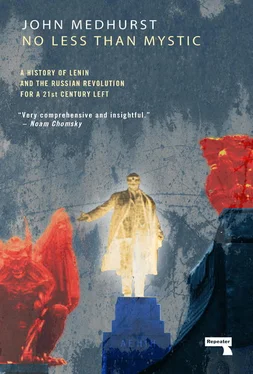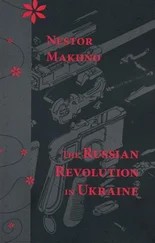Many illusions were shattered in August 1914, one of which was that the “Labour Unrest” of 1910-14 had effected a fundamental radicalisation of British workers. Although the industrial actions of the period had been dramatic and divisive, Donald Sassoon records the melancholy fact that “the wave of syndicalist unrest in the years leading up to the First World War did not make any serious inroad into the ‘social-patriotic’ mentality of most British workers”. 16Although socialist parties in neutral countries such as Italy and Denmark held out against the tide of militarism, those in belligerent countries were intimidated and overawed by the enthusiasm with which “the peoples of Europe, for however brief a time, went lightheartedly to slaughter and to be slaughtered”. 17
The reactions of the leaders of the apparently irreconcilable forces of “reformism” and “revolution” within the European left did not always conform to stereotype. Predictably most right-wing social democrats and trade union leaders became social-patriots. It was no surprise, for example, that the Belgian Labour leader Emile Vandevelde, who had been afraid to use the word “socialism” even in peace time, zealously supported the war. But it was a surprise that the fiery French Marxists Jules Guesde and Gustave Herve, who in the prewar years had thundered denunciations of reformism and urged syndicalist strike action against the French state, became fervent patriots. So did H.M. Hyndman, leader of the Marxist Social Democratic Federation in Britain. So did the “Father of Russian Marxism” Plekhanov. So did the theorist of “Permanent Revolution” Parvus, from whom Trotsky took the initial concept. Yet the reformist parliamentary socialists Hardie and MacDonald in Britain, and Bernstein in Germany, resisted the rise of xenophobia and took public stands against the war. As did Jaures, who paid for his opposition with his life.
The exception was the Russian social democrats. The declaration of war by the Tsar on 3rd August, 1914 finally united the RSDLP. All party deputies in the Duma refused to vote for war credits and opposed the war. Such was Lenin’s expectation that the Second International would abide by its slogans that when he read about the unanimous vote of the German Social Democrats in the Reichstag for war credits he refused to believe it. In contrast, the leading tribunes of Russian Marxism attained a kind of greatness in 1914. While nearly all the leaders of the European socialist parties betrayed the core principles of internationalism, Lenin, Martov, Axelrod and Trotsky stood firm. They ignored national sentiment in favour of working-class solidarity that, if acted upon, might have avoided the bloodbath of 1914-18. Virtually no other European socialist party did the same.
In September 1914, Martov set up an anti-war paper in Paris called Golos (The Voice), which was uncompromising in its condemnation of the war. Trotsky went to Paris in order to write for it. Lenin acknowledged that Golos was “at present the best socialist newspaper in Europe”. He added, “The more often and the more strongly I dissented from Martov, the more categorically must I say he is now doing exactly what a social democrat ought to do”. Martov in turn praised Lenin’s new paper Social Democrat and said that in the light of the present crisis the pre-war controversies had lost significance. Golos was subject to severe censorship and harassment and only lasted until January 1915 when it was replaced by Nashe Slovo , a similar paper edited by Trotsky. It attracted the finest literary and journalistic talent of the former RSDLP, including Trotsky, Martov, Lunacharsky, Alexandra Kollontai and David Riazanov. But its passionate anti-war polemics concealed fundamental political differences amongst its contributors.
Martov was torn between his desire to condemn the war utterly and his comrades in the Menshevik party who had rallied to the defence of Russia. Although he fiercely disagreed with them and with the leaders of the Second International, he shrank from labeling them irredeemable traitors to the socialist cause, for had they not faithfully reflected the patriotic wishes of their working-class supporters? In November 1914 he wrote, “All governments, though not equally reactionary in their internal policies, were equally incapable in the sphere of international politics of fulfilling an emancipatory, progressive mission, all being carriers of grabbing, imperialist tendencies which derive from the basic conditions of the present stage of international capitalism”. 18He also saw the war differently than Lenin and Trotsky. For Lenin it was a great opportunity. It had armed the working classes and the longer it went on the more it would undermine the ruling elites of Europe and prepare the ground for social revolution.
At no point did Lenin experience Wilfred Owen’s “pity of war”. By vivid contrast, Rosa Luxemburg, imprisoned with Karl Liebknecht for opposing the war, wrote in the stirring Junius Pamphlet (1916):
Gone is the first mad delirium. Gone are the patriotic street demonstrations, the singing throngs, the violent mobs. The show is over […] Business is flourishing upon the ruins. Cities are turned into shambles, whole countries into deserts, villages into cemeteries, nations into beggars, churches into stables; popular rights, treaties, alliances, the holiest words and the highest authorities have been torn into scraps […] Shamed, dishonoured, wading in blood and dripping with filth, thus capitalist society stands. Not as we usually see it, playing the role of righteousness, or order, of ethics–but as a roaring beast, as an orgy of chaos, as a pestilential breath, devastating culture and humanity. 19
This was an emotional register far beyond Lenin.
Like Luxemburg, Martov’s stand against the war was driven not just by class politics but by revulsion at its destruction of civilised values and the sheer waste of human life. He called for the “speediest possible termination of the war and the most radical steps in the direction of disarmament”. Lenin regarded such moralism as “contemptible pacifism” and preached a doctrine of “revolutionary defeatism”, i.e. that Russian social democrats should agitate for the defeat of Tsarist Russia as this would inevitably lead to civil war and socialist revolution. Where Martov wrote articles demanding peace and disarmament, Lenin wrote in October 1914, “The slogan ‘Peace’ is not the right one at the moment. This is the slogan of priests and the petit bourgeoisie. The proletarian slogan should be ‘Civil War’”. 20
With these crucial differences bubbling beneath the service, the anti-war left organised the only attempt during the First World War to create an internationalist front of socialists from combatant countries. With the International Bureau of the Second International actively stifling attempts to organise an anti-war conference, the Italian Socialist Party called a conference on its own. Martov and the leader of the Swiss Socialist Party, Robert Grimm, were instrumental in organising it and in securing the widest possible attendance. Anti-war socialists met at Berne to prepare the conference and to decide who to invite. Whilst Grimm and Martov wished the conference to be as inclusive as possible, Lenin wanted to exclude the German “centrists” Kautsky and Bernstein, who had taken a moral stand against the war but not broken with the SPD.
Lenin’s proposals at Berne–to exclude the German centrists and to issue a manifesto calling on the soldiers of belligerent countries to mutiny–were rejected by a majority. Martov and most other delegates were attempting to form the broadest possible anti-war coalition, which meant working with all anti-war socialists whatever their other political positions. They pointed out that any delegates from belligerent countries who returned home advocating Lenin’s manifesto would be arrested and possibly executed for treason (Lenin himself took no such risk as he lived in neutral Switzerland). The manifesto would also have been totally ignored. The worst bloodbaths of the Western Front had not yet begun and most of the European working class was still heavily patriotic.
Читать дальше












